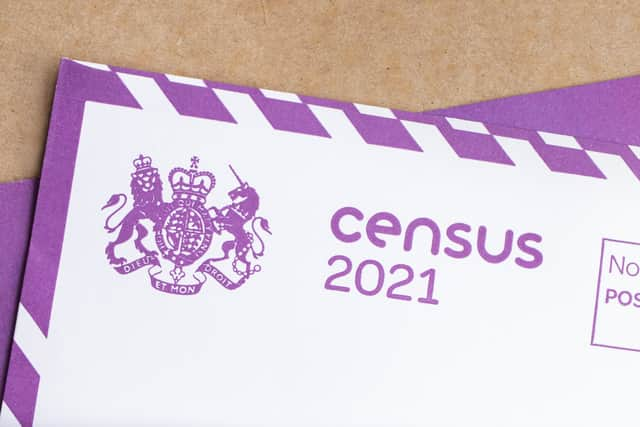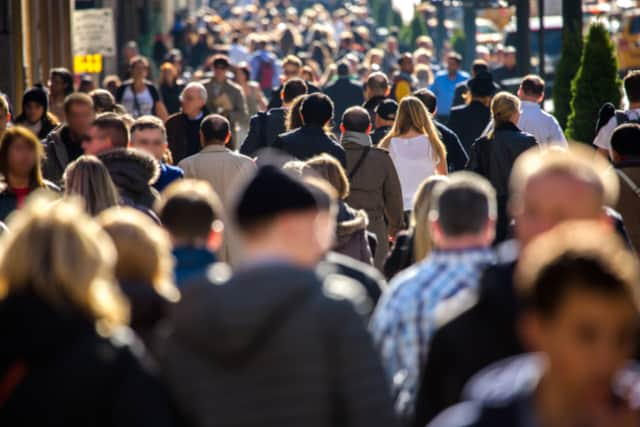UK Census 2021 results Liverpool: how has population of the city changed according to ONS data for England?
and live on Freeview channel 276
Another decade has passed us by since the publication of England and Wales’ last national census in 2011
Now, after a series of issues such as a cost of living crisis and the Covid-19 pandemic, the results of the 2021 census have now been officially published.
Advertisement
Hide AdAdvertisement
Hide AdHouseholds across the United Kingdom took part in answering a number of various questions on Census Day, which was just over a year ago at the time of publication.
But now the official data has since been published, how has the population of Liverpool and Merseyside changed over the last 10 years? Are there more men than women in the city? How does the data compare to official ONS estimates? LiverpoolWorld has you covered with everything you need to know.
What is a census?


A census is a procedure that has been taken every 10 years since 1801 which systematically calculates, acquires and records information about members of any given population.
It is the most complete source of information about the UK people that is used to paint a detailed picture of society for authorities.
Advertisement
Hide AdAdvertisement
Hide AdThe census is a good way to easily compare different parts of the country and allows central and local government, health authorities and various other organisations to target their resources more effectively.
It helps plan vital elements of everyday life such as housing, education, health and transport services for the future.
Every household in the UK is required to take part.
When was the Census 2021 recorded and released?
Census Day - which was the time when the census was recorded and a majority of the population answered various questions - was on Sunday, 21 March 2021.
The first census results for England and Wales were published by the Office for National Statistics (ONS) on Thursday, 28 June 2022.
How has the population of Liverpool changed over the last 10 years?


Advertisement
Hide AdAdvertisement
Hide AdAccording to recently published data supplied via the 2021 Census by the Office for National Statistics (ONS), Liverpool and the surrounding Merseyside region has changed drastically in terms of its population over the last decade.
The city has seen its population swell with 486,100 people living in the area on Census Day - up by 4% from 466,415 in 2011.
This also means that population density has also increased, with 4,347 usual residents per square kilometre - up from 4,171 in 2011.
In terms of the gender split of Liverpool, the balance has changed over the last 10 years with a higher proportion of women in the city.
Advertisement
Hide AdAdvertisement
Hide AdThe Liverpudlian population sits at 48.7% male and 51.3% female compared to 49.4% and 50.6% respectively in 2011.
The 2021 Census has also revealed that Liverpool has seen a rise in the amount of young children and elderly people, with 10.9% of the population currently under-10s and 15.3% over-65s.
As per the data of the last five census, here are the historic population figures of Liverpool:
- 1981: 503,722
- 1991: 452,450
- 2001: 439,469
- 2011: 466,415
- 2021: 486,100
How does the data from Census 2021 compare to the ONS estimates?
The following data shows how the official information from the 2021 Census compares to the estimates made by the Office for National Statistics (ONS).
Advertisement
Hide AdAdvertisement
Hide AdThese estimates - which are produced annually - were made in mid-2020 and are based on the most recent census.
- Total Liverpool population - 500,474 (ONS estimate), 486,100 (Census 2021) - below the estimate
- Number of over-65s - 73,799 (ONS estimate), 74,300 (Census 2021) - above the estimate
- Number of males - 250,396 (ONS estimate), 236,700 (Census 2021) - below the estimate
- Number of females - 250,078 (ONS estimate), 249,400 (Census 2021) - above the estimate
How has the population of the North West of England changed over the last 10 years?


Across England and Wales as a whole, the total population increased from 56,075,912 (2011) to 59,597,300 (2021) - a growth of 6.3%.
This includes a sizable increase in the North West of England too, which has seen its population grow by 5.2% from 7,052,177 (2011) to 7,417,300 (2021).
Comment Guidelines
National World encourages reader discussion on our stories. User feedback, insights and back-and-forth exchanges add a rich layer of context to reporting. Please review our Community Guidelines before commenting.
